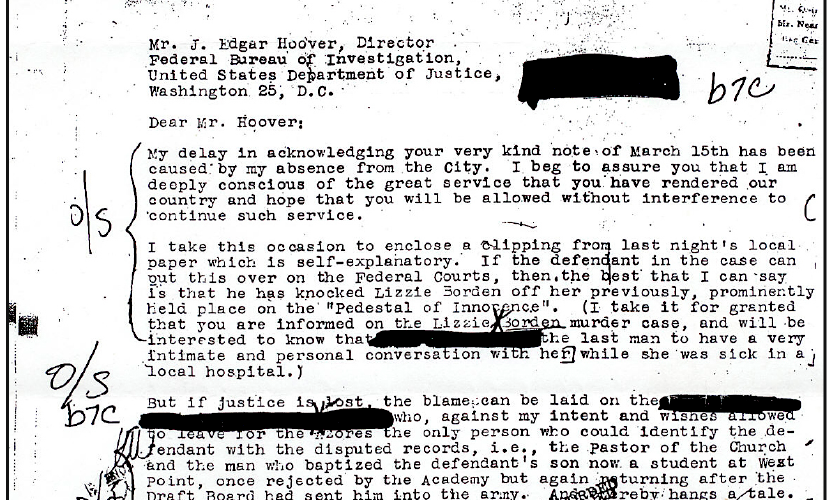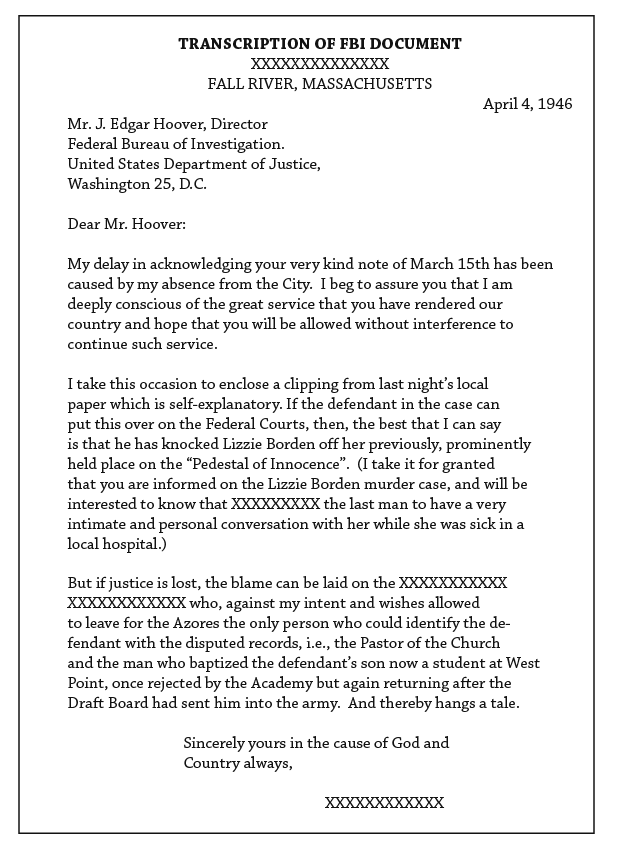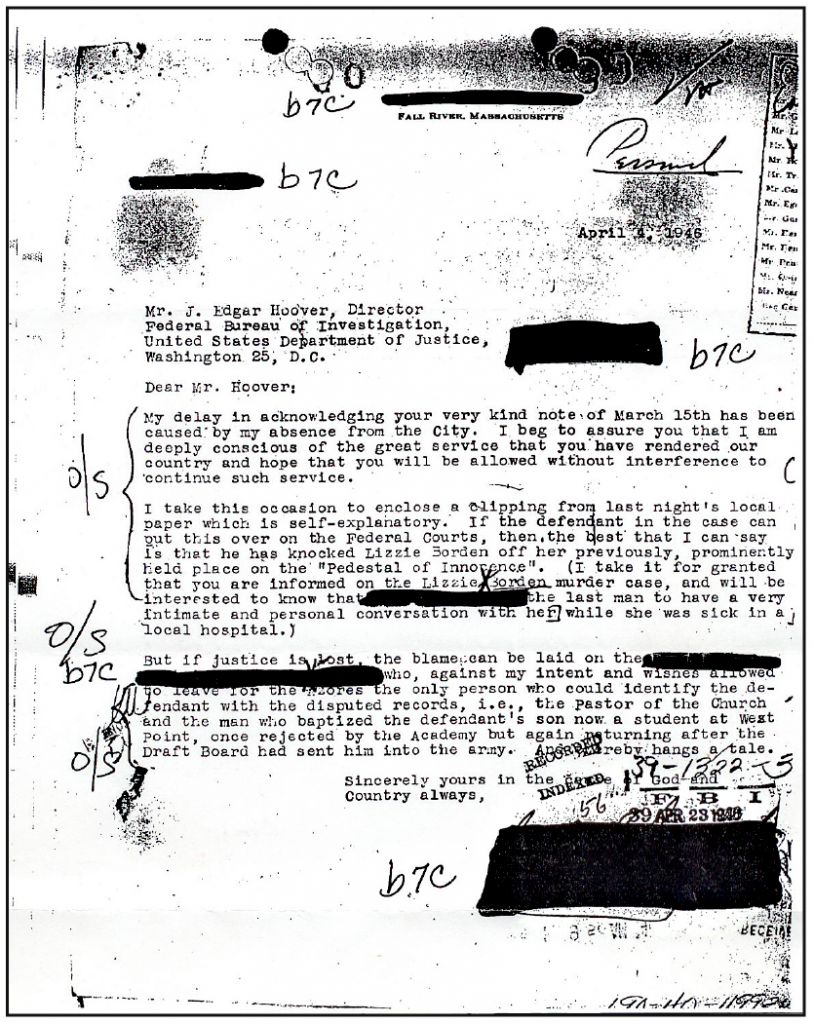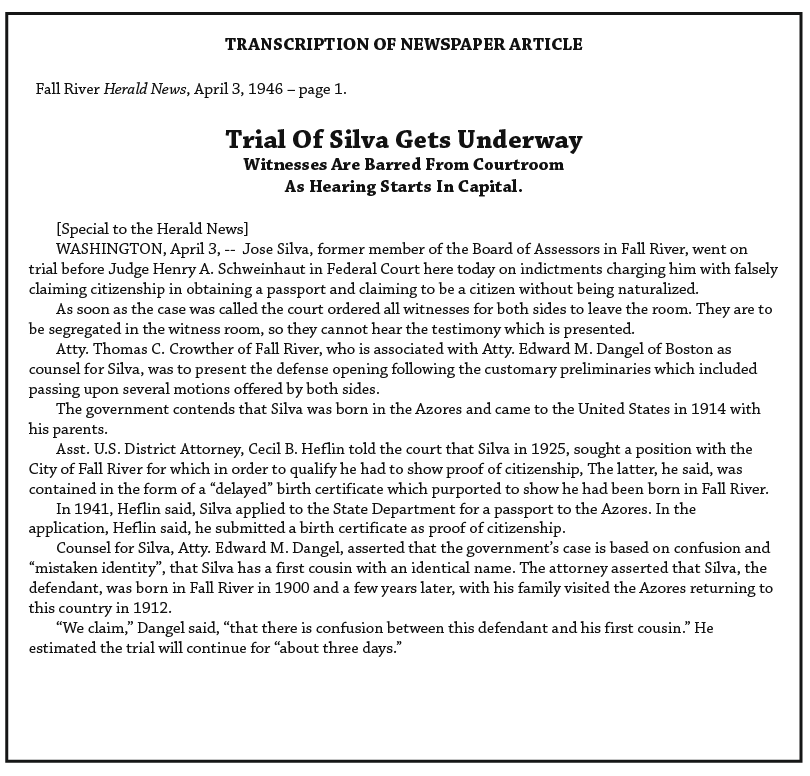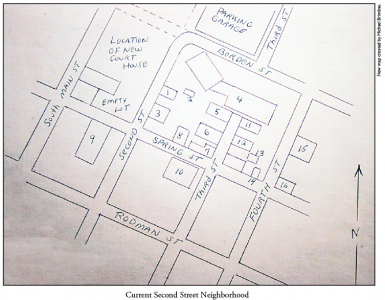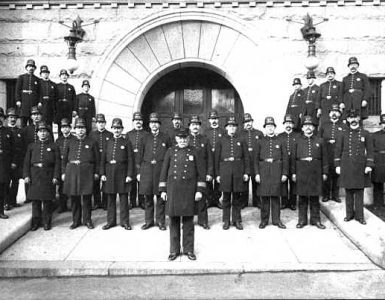by Harry Widdows
First published in April/May, 2004, Volume 1, Issue 2, The Hatchet: Journal of Lizzie Borden Studies.
Once again Lizzie Borden turns up in the most surprising places!
In January 2004, Lizzie Borden Society Forum member and artist Susan Magliaro discovered that there was a document in the files of the F.B.I. pertaining to Lizzie Borden.
On January 12, 2004, I sent a letter to the F.B.I., citing the Freedom of Information Act, and requested a copy of this document. On January 23rd, the F.B.I. mailed me a copy that is included and transcribed below.
As can be seen, this letter, dated April 4, 1946, is a heavily redacted document that mentions Lizzie Borden in reference to a verdict in another (unrelated) case. Mark Amarantes conducted a search for the unrelated case and found it on page 1 of the April 3, 1946, Fall River Herald News. This article that Mark found is also included and transcribed, following the F.B.I. letter.
WHAT DOES IT ALL MEAN?
According to the letter’s author, Lizzie will be knocked “off her previously, prominently held place on the ‘Pedestal of Innocence’ ” by an innocent verdict in this case. Apparently the letter writer felt that this defendant was guilty to an even greater degree than he thought Lizzie had been.
The author mentions that while in the hospital Lizzie had a visitor, a man (name blacked out) who had an “intimate and personal conversation with her”—the last to do so. We know that Lizzie entered Truesdale hospital in 1926, a year before her death, for a gall bladder operation.
At my request, and without the benefit of seeing the article that Mark found, Maynard Bertolet examined the document and has given me permission to quote his analysis of it here. From his reading of it, Bertolet surmises:
1. The writer and J. Edgar Hoover were acquaintances.
2. The writer was quite possibly a Pastor and a supporter of Mr. Hoover.
3. The writer was close to a local (read Fall River) prosecutor, or less likely, a police official.
4. Mr. Hoover had previously written to the writer and inquired about the local authorities allowing a
witness to leave the country for the Azores.
5. Mr. Hoover was disappointed that the witness was allowed to leave the local Fall River jurisdiction.
6. The writer had attempted to persuade his close legal associate to deny a visa to the witness, but had
not prevailed.
7. The witness was quite possibly the only person who could identify a person accused of stealing
some records and was legally charged with the crime.
8. Evidently the witness did not wish to identify the defendant because the witness was a Pastor of a
local church and had baptized the defendant’s son.
9. The defendant’s son had once been rejected for admittance to West Point and had then been
drafted into the Army.
10. The defendant’s son had then been recommended to West Point and accepted.
11. In passing, the writer mentioned the Lizzie Borden murder case to Mr. Hoover.
12. The writer believed that Miss Borden was guilty, and assumed that Mr. Hoover thought the same way.
13. In 1926, when Miss Borden entered Truesdale Hospital to have her gall bladder removed, a man
known to the writer, perhaps another Pastor, had a personal and intimate conversation with her,
perhaps about her salvation.
Although we both agree that the letter has little to do with Lizzie, it does generate a number of questions:
A. Who was the sender of the letter? The header shows that it was sent from Fall River.
B. Who was the man who had the “intimate and personal” conversation with Lizzie?
C. Of what interest was this man to the F.B.I.?
Perhaps Lizzie’s visitor was a Pastor. Her funeral service in 1927 was performed by the rector of the Church of the Ascension on Rock Street, the Rev. Edmund C. Cleveland. Lizzie’s burial instructions, which are dated 1919, specify this Pastor as her choice to provide the service and he may have been a visitor to Lizzie’s hospital room while she was sick. To my knowledge, there is no record of Lizzie attending that church. The person who visited Lizzie, though, must at least have a name that would be recognized by Mr. Hoover—“and thereby hangs a tale.”


